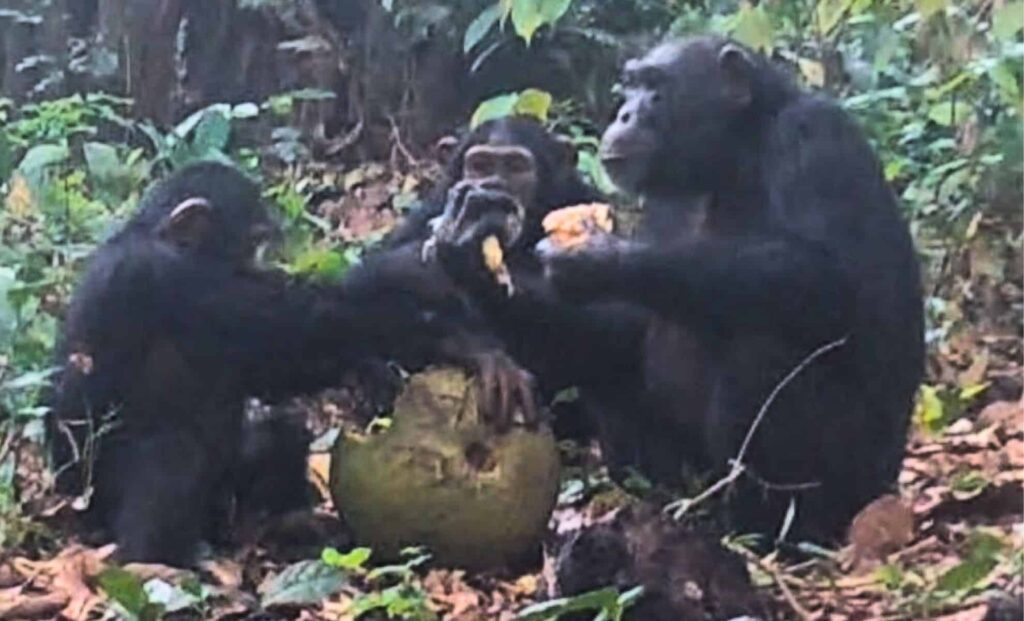In the dense forests of Guinea-Bissau’s Cantanhez National Park, chimpanzees are doing something unexpected. As dusk settles and the air thickens with humidity, they come together around a particular kind of fruit—overripe, fallen, and slightly fermented. The behavior appears to be more than feeding. It resembles something strikingly familiar: a social ritual.
Researchers from the Cantanhez Chimpanzee Project, a long-running field study led by anthropologists based in the United Kingdom, recently documented these scenes. Their findings, published in Current Biology, suggest that chimpanzees in this West African reserve are engaging in peaceful, voluntary gatherings centered around the consumption of alcohol-containing fruit. The fruit in question, from the African breadnut tree, contains about 0.5 percent alcohol once it begins to ferment on the forest floor.
Choosing Company Over Abundance
What intrigued scientists wasn’t just the consumption of fermented fruit—it was how the chimpanzees did it. Instead of spreading out to feed individually, they often gathered around a single large fruit, even when other options lay untouched nearby. The gatherings included individuals of different ages and sexes, many without apparent kinship ties, sharing the fermented pulp without aggression.
The fruits themselves can reach the size of a volleyball and offer a soft, sugary flesh that ferments naturally after falling. The low-level alcohol content is not enough to intoxicate the animals but appears to subtly alter their behavior, making them more relaxed and tolerant of one another’s presence. According to the researchers, this kind of food-based interaction may serve a social function not unlike human customs centered on shared meals or drinks.

A Genetic Taste for Ethanol
The behavior may be rooted in evolutionary biology. Great apes in Africa, including chimpanzees and humans, share a specific mutation that enhances their ability to metabolize alcohol. This genetic trait affects the enzyme known as alcohol dehydrogenase, allowing them to better digest ethanol—a product of natural fermentation.
This metabolic advantage likely offered ancestral primates a dietary edge, enabling them to access energy-dense, fermented fruits that were easier to digest and less prone to contamination by harmful microbes. The sugary-alcoholic mixture, enriched by bacteria and yeasts introduced by insects, not only improves palatability but also delivers a higher energy payoff. For the chimpanzees observed in Guinea-Bissau, these fruits may reduce stress and promote affiliative behaviors.
Echoes of an Ancient Appetite
The team behind the study interprets the phenomenon as an important behavioral insight. Much like mutual grooming—long seen as a cornerstone of primate social bonds—the sharing of fermented fruits might reinforce social cohesion among chimpanzees. “Consuming fermented fruit appears to serve a function similar to social grooming,” the authors wrote, emphasizing the calm, tolerant atmosphere during these gatherings.
The researchers observed this behavior repeatedly, noting that it occurred spontaneously and without signs of hierarchy or conflict. This suggests that the gatherings are not driven by dominance or mating opportunities but by something more cooperative. They offer a glimpse into the evolutionary roots of communal drinking, pointing to a taste for alcohol that may long predate human culture.

